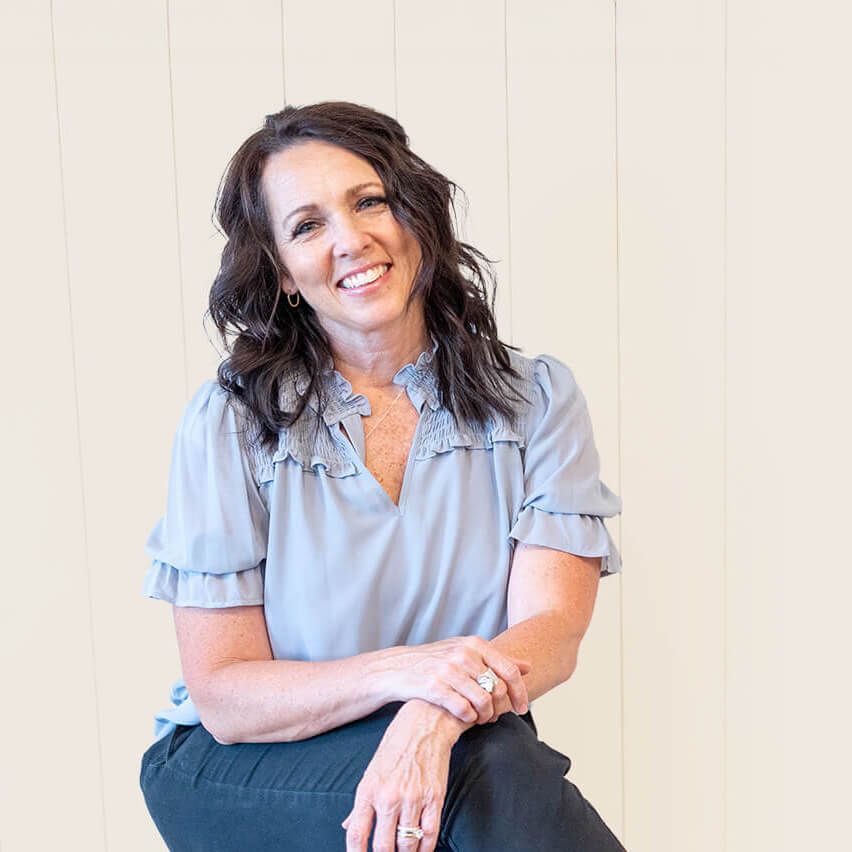Calm Mom, Connected Son
Sep 26, 2024
As moms of teenage boys, we often find ourselves wondering what's going on in those complex minds. One day they're angry, the next day silent. How do we navigate these emotional waters? How do we maintain connection when it feels like they're drifting away?
My recent podcast conversation with master coach Molly Claire revealed some powerful insights I'm excited to share with you. These strategies have transformed how I connect with my own sons, and they might just be the game-changer you need right now.
The Temperature Check That Changes Everything
Here's a simple truth many of us miss: before we can understand our son's emotions, we need to understand our own.
"One of the things moms often do is try to take their son's emotional temperature," Molly explained. "But a better question to ask is: Where am I today?"
This small shift makes all the difference. When we focus on our own emotional state first, we build a foundation of calm. We access our prefrontal cortex the thinking, planning part of our brain that often goes offline when we're emotionally activated.
Starting your day by checking in with yourself isn't selfish; it's essential. It allows you to show up grounded, which creates safety for your son to express himself.
Why Your Teen Feels Safest Lashing Out at You
Have you noticed your son saves his biggest emotional outbursts for you? There's actually a good reason for this.
"We most likely are that person they feel most safe with," I shared during our conversation. "So we will be the one they lash out to."
This is both a compliment and a challenge. Your son trusts you with his raw emotions because he knows, on some level, that your love is unconditional. The challenge is not taking it personally when those emotions come out sideways.
Setting clear boundaries remains important: "If the behavior toward us is not okay, then we want to uphold respectful boundaries," Molly emphasized. "That's respectful to us, to them, and to their future partners."
Think of your boundaries like bowling lane bumpers – giving space for emotions while preventing harmful behavior.
The One Question That Builds Emotional Intelligence
Want to help your son develop emotional awareness? There's a simple question that works wonders: "What would be most helpful right now?"
This question accomplishes several things:
- It shows you respect his autonomy
- It teaches him to identify his own needs
- It builds the emotional intelligence he'll need in future relationships
"Here's the kicker," Molly pointed out. "We have to trust the answer they give us. If they say 'nothing,' that has to be okay."
Sometimes adding "If that changes, let me know" gives them permission to process and come back when they're ready.
Another powerful question: "How do you know that I love you?" Their answer might surprise you – and show you exactly where to focus your energy.
Breaking Free from Fear-Based Parenting
Let's be honest – parenting teenage boys can be scary. We worry about school performance, social struggles, screen time, and future prospects. This fear can drive us to control, hover, or lecture.
"Our kids will do things in their lives that are detrimental to them," Molly acknowledged. "Our kids will experience pain, sadness, consequences for their own choices."
This is perhaps the hardest truth to accept as parents. But here's why it matters: when we parent from fear, we communicate distrust. We undermine the very self-confidence our sons need to navigate life's challenges.
The alternative? Parenting from a place of confidence in both ourselves and our sons. This means:
- Setting clear, reasonable boundaries
- Allowing natural consequences when appropriate
- Communicating belief in their ability to handle difficult situations
- Taking time to process our own fears separately
When fear arises, try stepping away briefly. Acknowledge the emotion: "I'm feeling scared." Sit with it for a few minutes, then return to your son as the calm, confident mom he needs.
Letting Go of Useless Guilt
If there's one universal emotion among mothers, it's guilt. But not all guilt serves a purpose.
"I categorize guilt into two categories," Molly shared. "There's useful guilt and there is useless guilt."
Useful guilt leads to genuine apologies and positive changes. Useless guilt – which Molly estimates makes up 99% of mom guilt – just keeps us spinning in shame without creating growth.
When guilt arises, ask yourself: "Is this creating a powerful shift in me?" If not, it's time to let it go.
Your Next Step: The Boy Mom's Blueprint
Navigating your son's emotions doesn't have to be a mystery. You don't need to choose between being a doormat or a dictator. There is a middle path that creates safety while teaching valuable emotional skills.
Remember, you're doing better than you think. Your son doesn't need a perfect mom – he needs YOU, showing up authentically and creating that safe space for him to grow into the good man you know he can be.
PS - If you want to listen to this impactful podcast episode of "Raising Boys, Building Men", click HERE
Want more conversations like this?
Join our private Facebook community for moms raising teenage boys. We talk about real-life challenges, share strategies, and lift each other up—because you don’t have to do this alone.
👉 Join “Raising Boys, Building Men” on Facebook
For Additional Support:
Visit our website Raisingboysbuildingmen.com HERE
Schedule a FREE Relationship Reconnection Call with Me HERE
Follow us on Instagram HERE
Grab 8 tips to connect with your son today HERE









